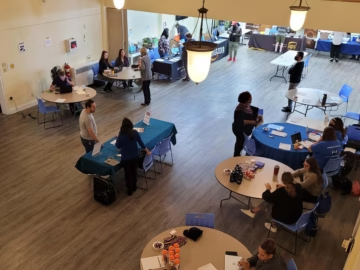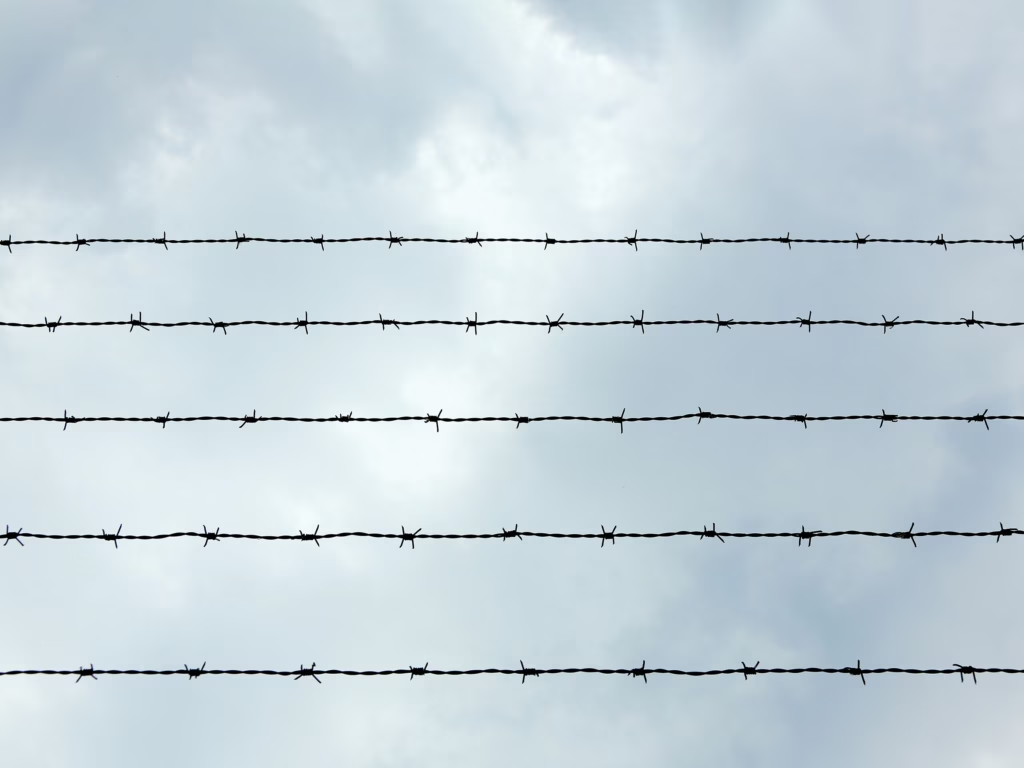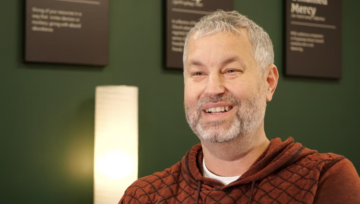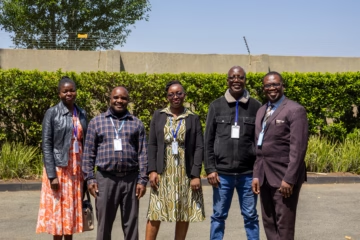
There are around 2.7 million children in the US who have at least one parent incarcerated.1 Five million people have had a parent in jail or prison at some point in their childhood. Incarceration numbers in the US are alarming in general, but these numbers are especially distressing.
One of the most troubling aspects of this reality is just how easy it is to overlook it. The impact of incarceration on the friends, neighbors, and loved ones of the incarcerated is substantial, but not as often recognized. Consider, for example, the following scenario:
A young man is arrested and convicted on a nonviolent drug-related offense. For his time, he receives a five-year mandatory minimum sentence. Let’s imagine, under normal circumstances, his regular income places his household (a girlfriend with two children) well under the poverty line. This is not an actual scenario, but it is also not an uncommon one. What happens next?
First, this young man’s mistake carries significant consequences for his girlfriend, who is now a single mother of two. She has just lost a major source of security for both herself and her children. She’ll need to find additional resources and possibly a new source of income. She’s also under significantly more pressure to find childcare. Some cities and towns have free or low-cost childcare, but these are often at full capacity and new clients are placed on wait lists. But our mother of two needs childcare now. More than likely she’s going to have to depend on others within her community to meet both her physical needs and the needs of her children, including childcare.
Consequently, those around this newly single mother will begin to feel the effects of this young man’s arrest. Families in low-income communities often rely heavily on their neighbors, family members, and friends for support. But the loss of this young man will add a greater strain to an already limited pool of time, energy, and resources. Everyone within this young woman’s network will begin to feel the impact of her boyfriend’s offense.
It is not uncommon for the incarceration of a single individual to have real world consequences for people two and three times removed from the actual person under arrest. And so far we haven’t even touched on the long-term emotional, developmental, and psychological effects such events have on the children who find themselves in these scenarios. The incarceration of a parent is among the top five reasons children enter the foster care system.2 It can be difficult to determine just how far the consequences of a single person’s incarceration can reverberate through our society.
Partnering in Ministry
People who experience the arrest of a loved one are thrust into a scenario they did not design. Nonetheless, they will have to bear the burden of their loss. The experience can be isolating. In Lexington, KY, there is a ministry devoted to serving and supporting those with loved ones in prison. It is called Families of the Incarcerated, and our church has had the privilege of helping them help others.
Our church (Plowshares Brethren in Christ) is a home church network in Central Kentucky. Each of our home churches are encouraged to find some way of engaging the world in the name of Christ. One of our home churches decided to come alongside Families of the Incarcerated as their way of being the church in their city.
It’s important to make clear that we do not lead this ministry. We don’t organize the gatherings, follow up with their members, or promote their meetings. Families of the Incarcerated has excellent ministers who devote themselves to serving the needs and concerns of people in their ministries. What their ministry needed was a large, open, and central location for their members to meet. And we happened to have just the place.
Serving and Supporting
What seems like long ago, before the days of COVID and quarantine, our church rented space in an old bread factory. More recently the bottom of the facility has been repurposed into a brewery (making a different sort of high calorie carbohydrate). But the second story was rented by a not-for-profit called The Plantory, and that is where our church set up its office and met for larger gatherings. We also had 24-hour access to a large conference room and a central kitchen. The location was exactly what Families of the Incarcerated was looking for.
Members of our church set up chairs. We brewed coffee, purchased donuts, greeted people as they arrived, and joined the circle to listen to the men and women invited to speak at the gathering. We also listened to the cares and concerns of those who have loved ones in prison—the ones who have come to Families of the Incarcerated to find help, support, and encouragement. We were honored to be included in their circle of trust.
We brewed coffee in one of those big, silver urns so popular at church functions. Those of us familiar with such gatherings can easily imagine the smell these things produce. But more importantly we can recall the people, the experiences, and the atmospheres that brought us together with Styrofoam cups in our hands. For those men and women who gathered Wednesday nights on the second floor of an old bread factory, that coffee symbolized love, support, and hope. For us, that coffee was our way of representing Christ.
We never advertised our church at these meetings. We didn’t leave out literature or Bibles or information about Plowshares. But neither were we shy about who we were or why we were there. We were simply a small church caring for our community in the name of Jesus. And that didn’t go unnoticed.
Among our number were a couple of men who had spent time in prison. They had “paid their debt to society” (whatever that means) and are now living successful lives and caring for their families. They joined Plowshares through an Alpha Group that we hosted. These guys really aren’t the “churchy” type, though they have a great respect for Christ and depth of spiritual concern. And they were thrilled to join us as we served the Families of the Incarcerated. One of them recalled how a similar group had supported his mother when he was in prison. They heard the Gospel in a powerful way by participating with those seeking to live it out on behalf of others.
Jesus once told the story of a group of incredulous saints who had visited him in prison. When asked when, he simply stated it was when they had done so for “the least of these my brethren.” Those who are overlooked, those are the ones with whom Jesus identified in the final analysis. In the final analysis, we may all be surprised to discover that Jesus himself has developed a taste for coffee brewed in those big, silver urns.
Notes
- “Children of Incarcerated Parents,” National Institute of Corrections, US Department of Justice ↩︎
- “#NationalFosterCareMonth: Why Children End Up In Foster Care,” A Family for Every Child ↩︎
This article was originally published in the Winter 2021 issue of Shalom! A Journal for the Practice of Reconciliation.


